The annual performance review. Your sweaty palms and racing mind is ready to discuss 101 things that have happened in the past year. “Where do I even begin?” You go in, start to speak to your manager and before you know it, your time’s up. You didn’t even get to say half of the things you wanted to.

The old school, once-a-year employee performance review (whether written or verbal) is just outdated and it usually doesn’t do a lot to help employees get better at jobs. In fact, only 14% of employees strongly agree that performance reviews inspire them to improve.
Many organizations conduct performance reviews because they believe it to be the right thing to do but never really contemplate why they actually do it in the first place. With it costing so much money - anywhere between $2.4 million to $35 million a year for an organization of 10,000 employees, people really need to ask themselves, “how is this helping”.
So why are these standard, yearly reviews not as effective as they are expected to be?
How much info can you squeeze into a 20-minute meeting or a two-page feedback form? With that being done only once, or twice a year, at best I believe, covers a month's worth of work. The average employee works 260 days a year. That’s a lot of time. That’s a lot of work. So how is it that one only manages to give them the feedback they require at the end of each year?
Because of insufficient time allocated for these sessions, employers are compelled to offer brief and generic feedback. Most organizations evaluate their employees across four to five key categories - “Communication, Teamwork, Initiative, Time Management & Job Knowledge”. It’s even worse when these are just rated on a scale of 1-5 on a single sheet of paper. How much can an employee get out of that?
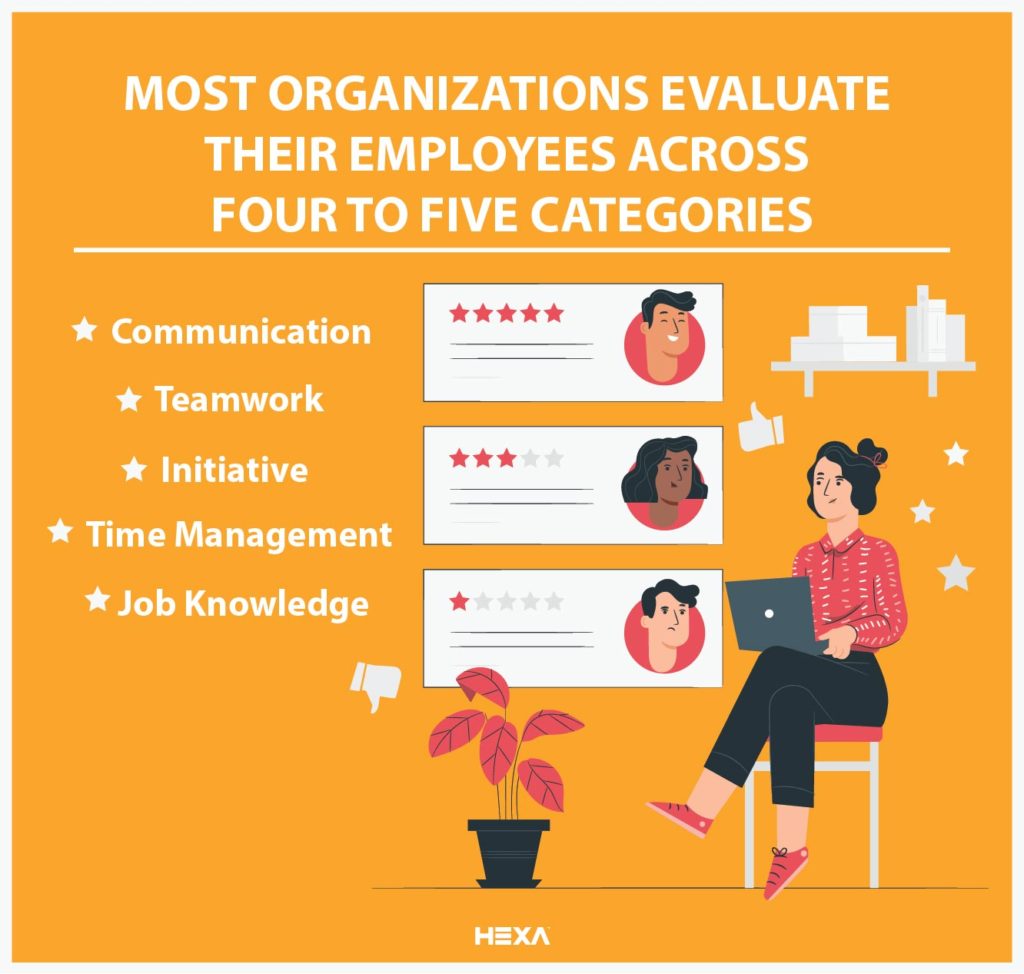
Perhaps an employee scores 2 out of 5 on “Communication”. Why is that? What can they do to improve? What are you expecting of them? Also bear in mind that different jobs require different skills. So what does the category of “communication” mean for this person? Do they need to speak better with clients? Do they need to speak up more? There are just so many things to cover, employees would be buzzing with questions. It’s hard to believe that they are rarely given this opportunity, and even when it does come, it’s gone in the blink of an eye.
There’s often a build-up of stress and anxiety surrounding performance reviews, for most people at least. Not even managers look forward to annual performance reviews. In fact, only 5 percent of managers are satisfied with them. Employees on the other hand are disappointed when they don’t get what they need - valuable, real-time feedback about how they’re doing.
Perhaps it’s because performance reviews are treated like some sort of a formal yearly obligation, or a chore even. It just seems to be one of those things that are done solely because it is a requirement. So managers fish out some information, put it on a piece of paper, and hand it out for the sake of it. It isn’t beneficial to either party.
To make matters worse, the situation feels rather delicate when it is tied up with expectations of raises and promotions. Both parties will feel the tension. Some managers feel bad about giving their employees bad reviews, while employees find themselves fretting over this session weeks or even months in advance. It feels like a grand finale of some sort. “This is it. Everything I’ve been working on for the past year comes down to this moment”.
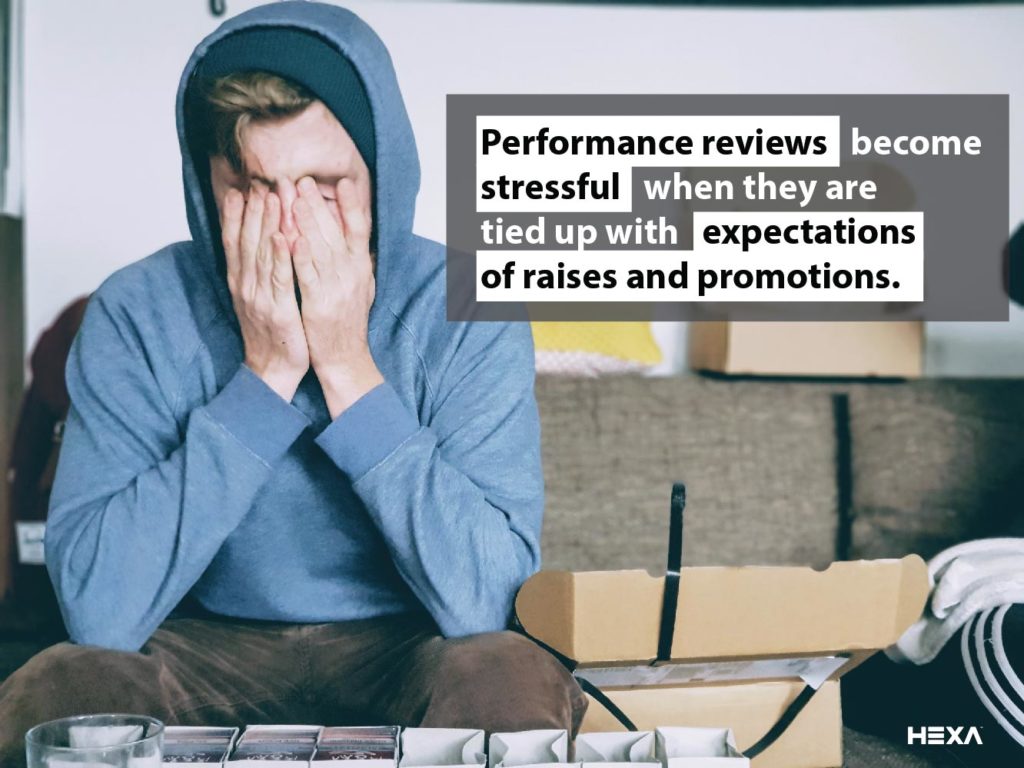
And it shouldn’t have to be that way. Performance evaluations are meant to help employees grow and improve themselves, not make them stressed over being good enough for a raise. It’s not meant to be awkward and formal to the point where there is no room for discussion either.
The traditional performance appraisals largely focus on aspects of weaknesses. It usually covers areas for improvement and betterment while failing to highlight the positive traits and achievements of a fellow employee. And if it is highlighted, it’s usually done in a mere effort to sugarcoat some of the not so great stuff.
Research has shown that focusing on weaknesses reduces productivity by 27%. By all means, I don’t think that managers overemphasize weaknesses to offend their employees, but it’s usually done in hopes that their employees will focus more on improvement in the upcoming year. But instead, the effects are often reversed.
In one of their studies, Gallup found that employees feel more confident, self-aware and productive when focusing on their strengths rather than weaknesses. This is what managers actually want because it leads to higher performance, increased engagement and significantly lower attrition rates.
Traditional performance reviews are based on the notion that, if a weakness can be corrected, then one would be considered fixed and complete. The issue with this mindset is that it brings about a feeling of insufficiency. The sense of “I’m not enough” comes with an entire package of negative emotions such as anger, fear and anxiety; neither of which makes one feel motivated to do better.
The average individual takes 66 days to form a habit. Just 66 days. Waiting 6 to 12 months to check in with an employee runs the risk of missing out on critical issues that affect their work, motivation and opportunity for growth. What if mistakes and problematic behaviours are just now getting noticed? These people have been doing things the same way all year long. At this point, it is no longer fair to expect them to change their behaviour or the way they work overnight.
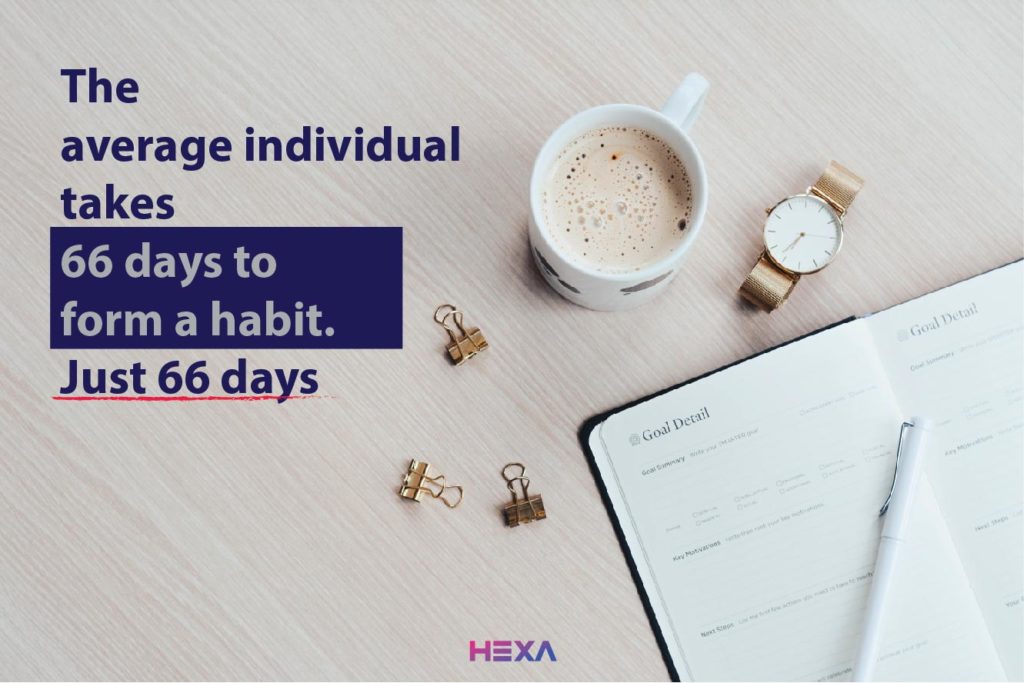
The fact is that the shorter the time between a mistake and feedback, the greater the possibility for change. Regular check-ins with employees give one the ability to correct serious issues as soon as they surface. With 96% of employees agreeing that regular check-ins are beneficial, it’s safe to assume that they are too, on board with this idea.
Another thing to take note of is that when reviews are conducted annually or even semi-annually, they tend to suffer from a recency bias. Both managers and employees are prone to discussing only the past few weeks or months that are still fresh in their minds. If the review is associated with raises or other opportunities, then it’s likely that it wouldn’t be fully capturing the employee’s accomplishments.
Appraisals provide employers with the opportunity to recognize and reward their employees. As necessary as constructive criticisms are, appraisals should also include positive feedback and acknowledgement of great work. When you put in time and effort to acknowledge employees for the work they do, they feel valued, which is actually a big thing! Studies have shown that 39% of workers move out of an organization because they do not feel valued.
By regularly monitoring an employee’s performance and progress, managers get to make better decisions about who gets a raise, a promotion or who gets kicked out. Otherwise, employees could be feeling like they do so much, but don’t really get the recognition they deserve. No employer wants to be losing some of their best talents just because they didn’t have the time to acknowledge great efforts nor do they want to keep individuals who continuously slack.
Performance evaluations give employers the opportunity to say “ Hey I see the work you’ve been doing. I think you’re doing a great job, keep this up and we can talk about a raise”. Most definitely a better alternative than having an employee ask for a raise at the end of the year while the manager anxiously explains why they do not see them fit for it.
The truth is, employees always want to know how they’re doing, but they rarely ask. If you’re an employer, providing your employees with praise, feedback and encouragement will more than likely result in a positive outcome. 1 in 4 workers admit that they actually will leave a job if their performance reviews are subpar. Without access to positive feedback and constructive criticism, employees are likely to feel like a cog in the wheel rather than a part of the team.
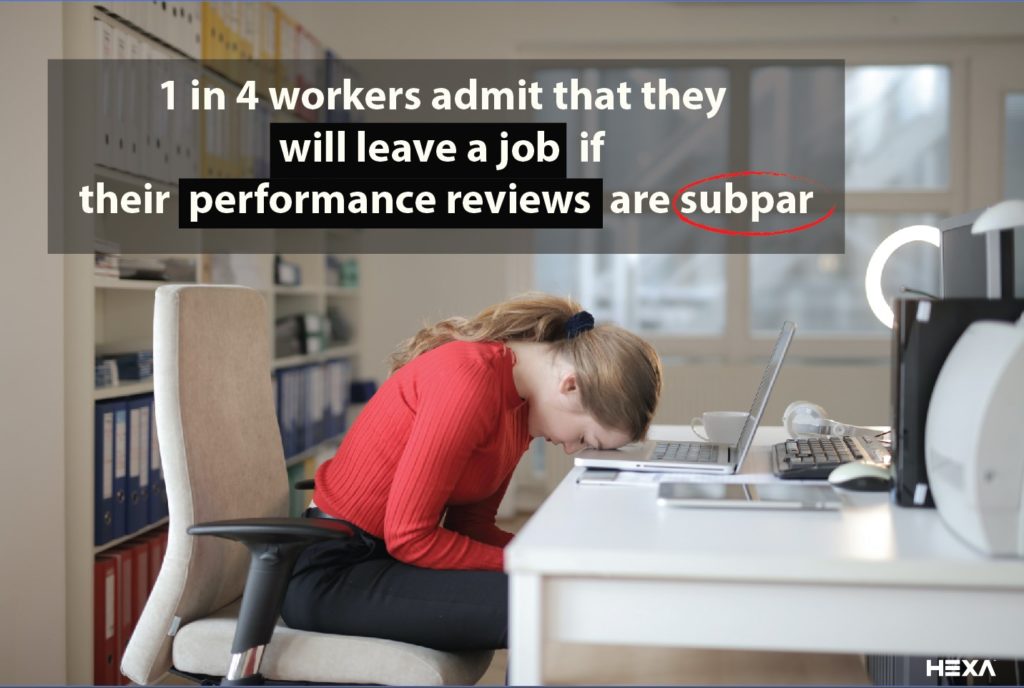
We all have our own biases. Sometimes we may overweight our contributions, so getting feedback from another helps us view ourselves more objectively. With that being said, the person evaluating also has their own biases. Managers have their own opinion on how things should get done, how people should be and such. As a result, these reviews may not be focused on an employee’s individuality, but rather, how they should navigate the workplace the way their manager expects them to.
Check-in conversations at Adobe are amazingly effective with their highly structured, three-phase model which includes expectations, feedback, and development. Under the feedback section, both managers and employees give each other feedback on how they’re progressing against expectations.
If managers are not open to receiving feedback, at the very least, what they can do is to get opinions from others in the workplace. A person’s review shouldn’t be subjected to a single person’s view of them, especially if an employee is spending most of their time working with others instead of the manager.
This sounds like a rather odd claim. What do performance reviews have to do with hiring processes? Well here’s the thing - up to 95% of companies hire the wrong people every year. Crazy right? If you’re an employer, chances are, you do have some employees who just aren’t fit for their roles. Without understanding employees and their day-to-day challenges, how can organizations effectively find the right hires to fill in the gaps?
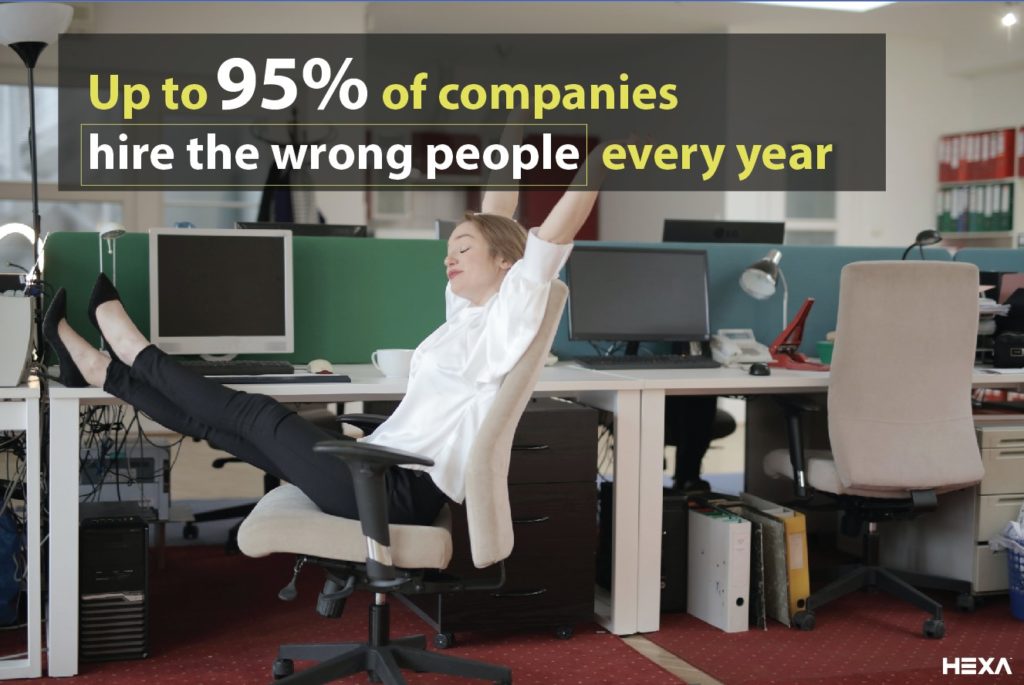
Understanding employees, their motivations, capabilities and expectations will help organizations in finding the kind of talent that will work well for their company as well as aid managers in providing an environment where employees can thrive. It would be a huge expense to be hiring the wrong people only for them to leave 2 months down the road because they don’t feel like they fit in right.
Performance reviews are an asset to understanding what or who your company needs.
Traditional performance evaluations are so bad that they actually make performance worse about one-third of the time. At best, they have no significant impact. Does that mean that performance reviews should be thrown out for good?
I don’t think so.
In short, traditional performance reviews have issues with timing, content and communication. Moving forward, growth-minded organizations will emphasize on:
Performance reviews should be conducted with the intention of helping the organization grow as a whole. With that in mind, you can’t go wrong.
With over 300 clients across the Asian region and more
than 20 years of experience, Hexa Business has an
extensive understanding of industry insights
and employee management.
What works, what doesn't, and what's trending
in the world of business